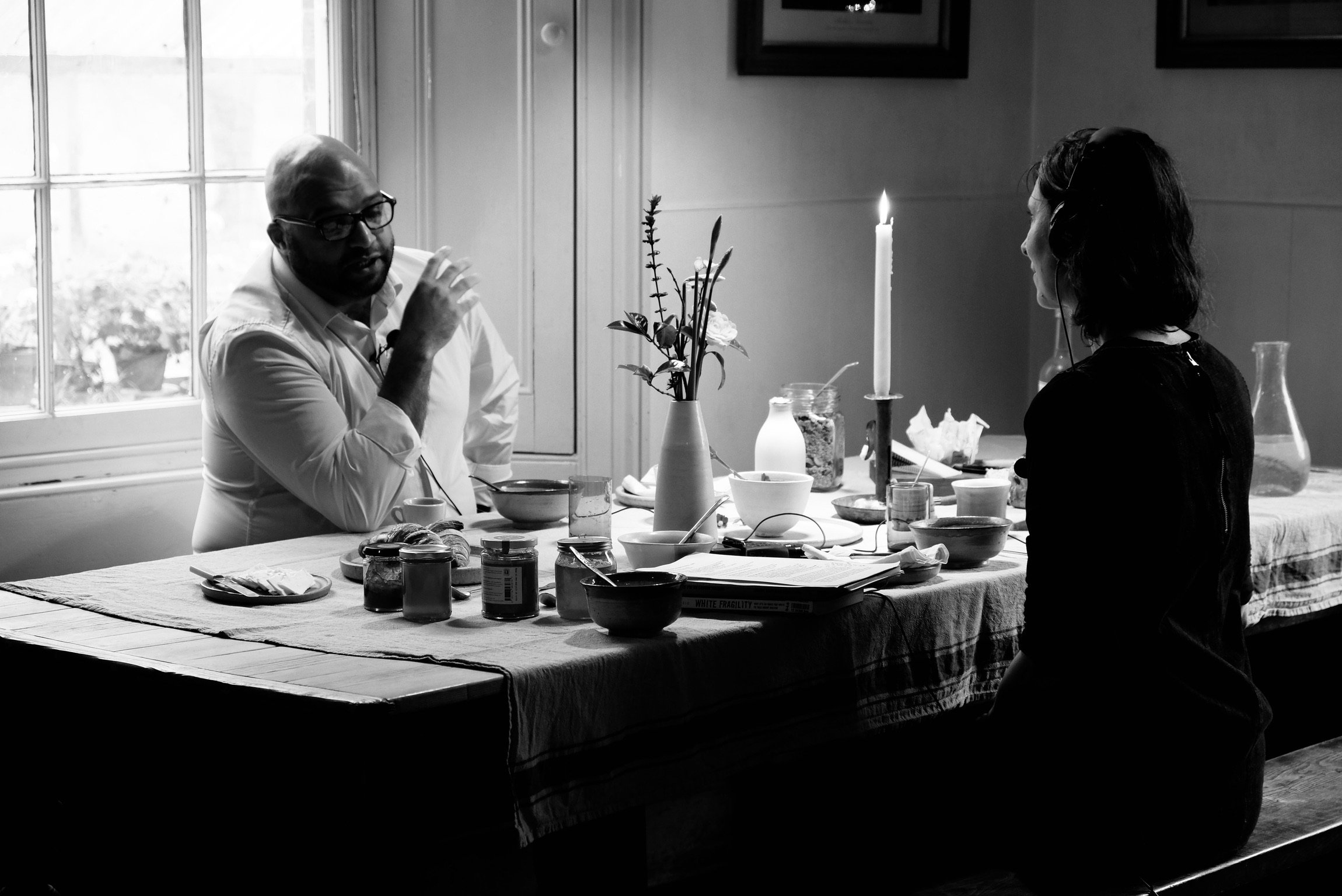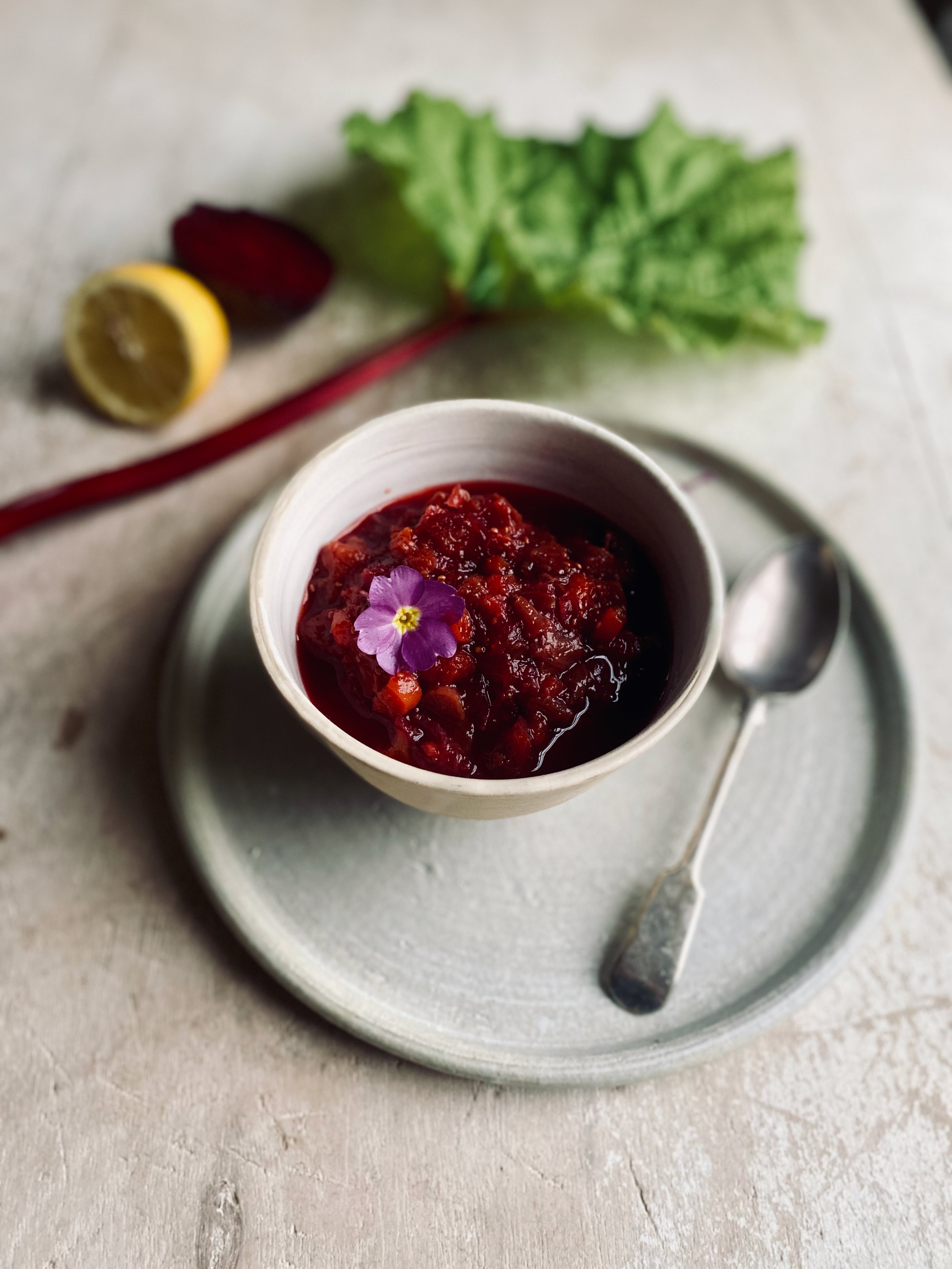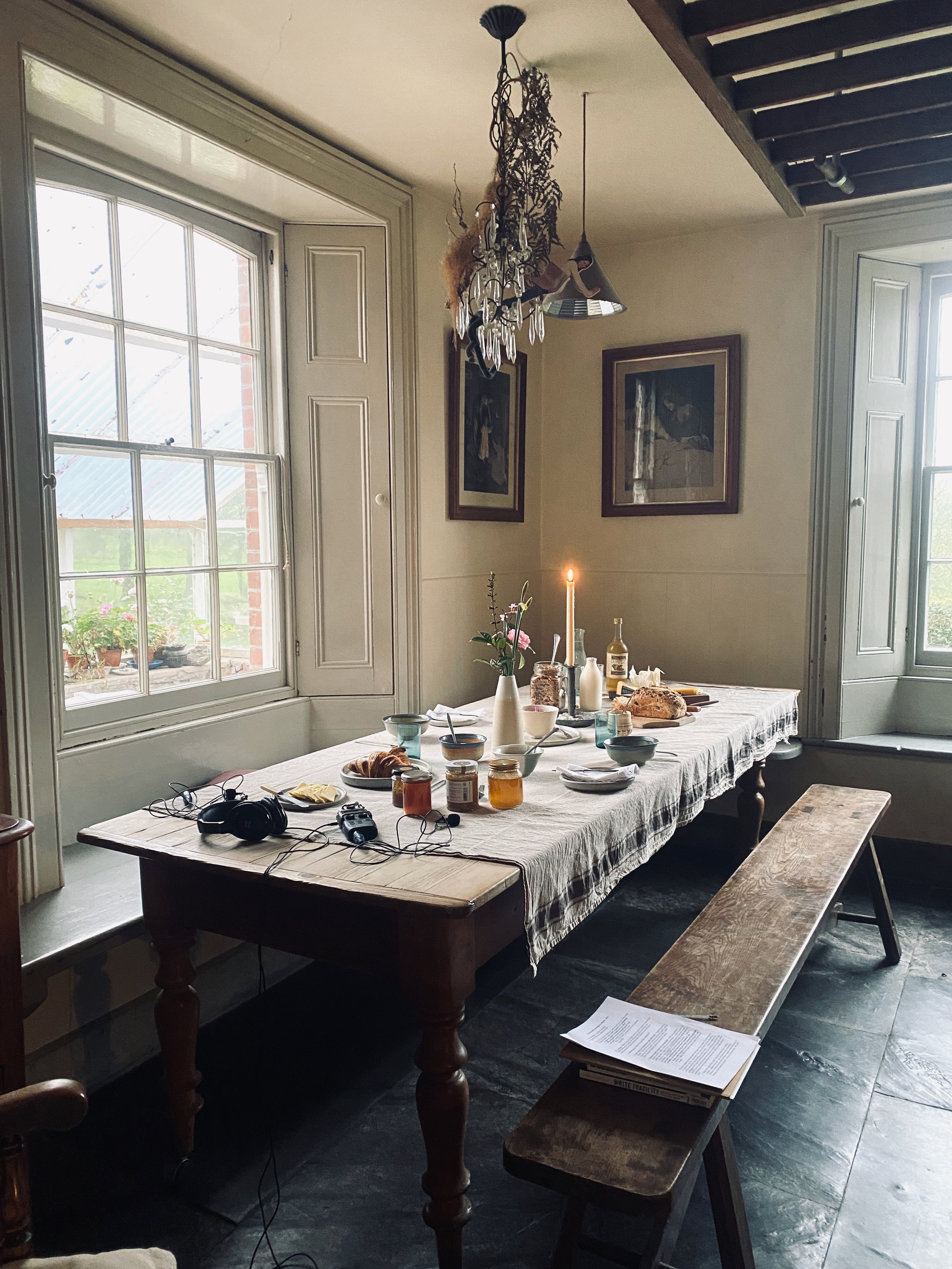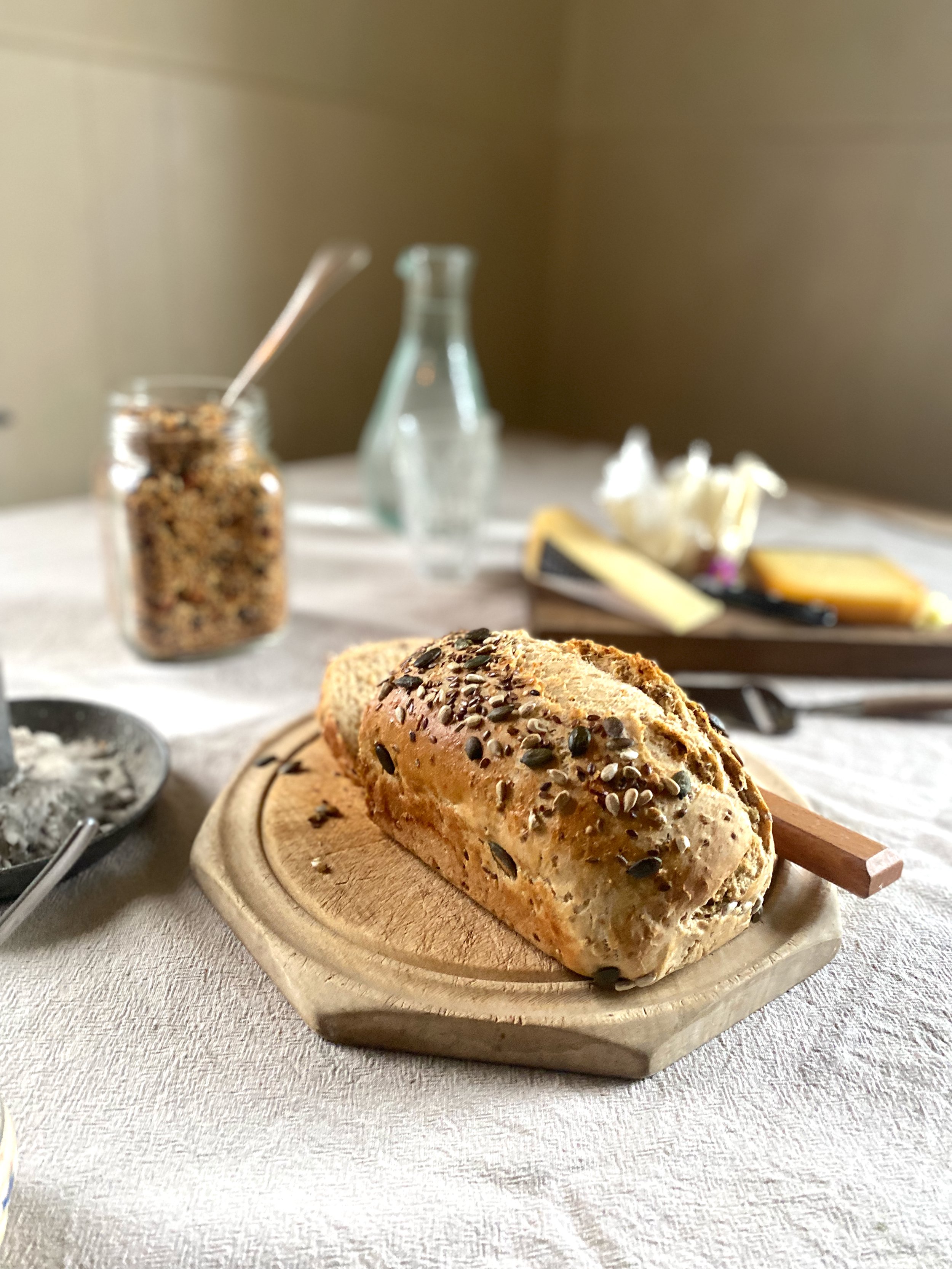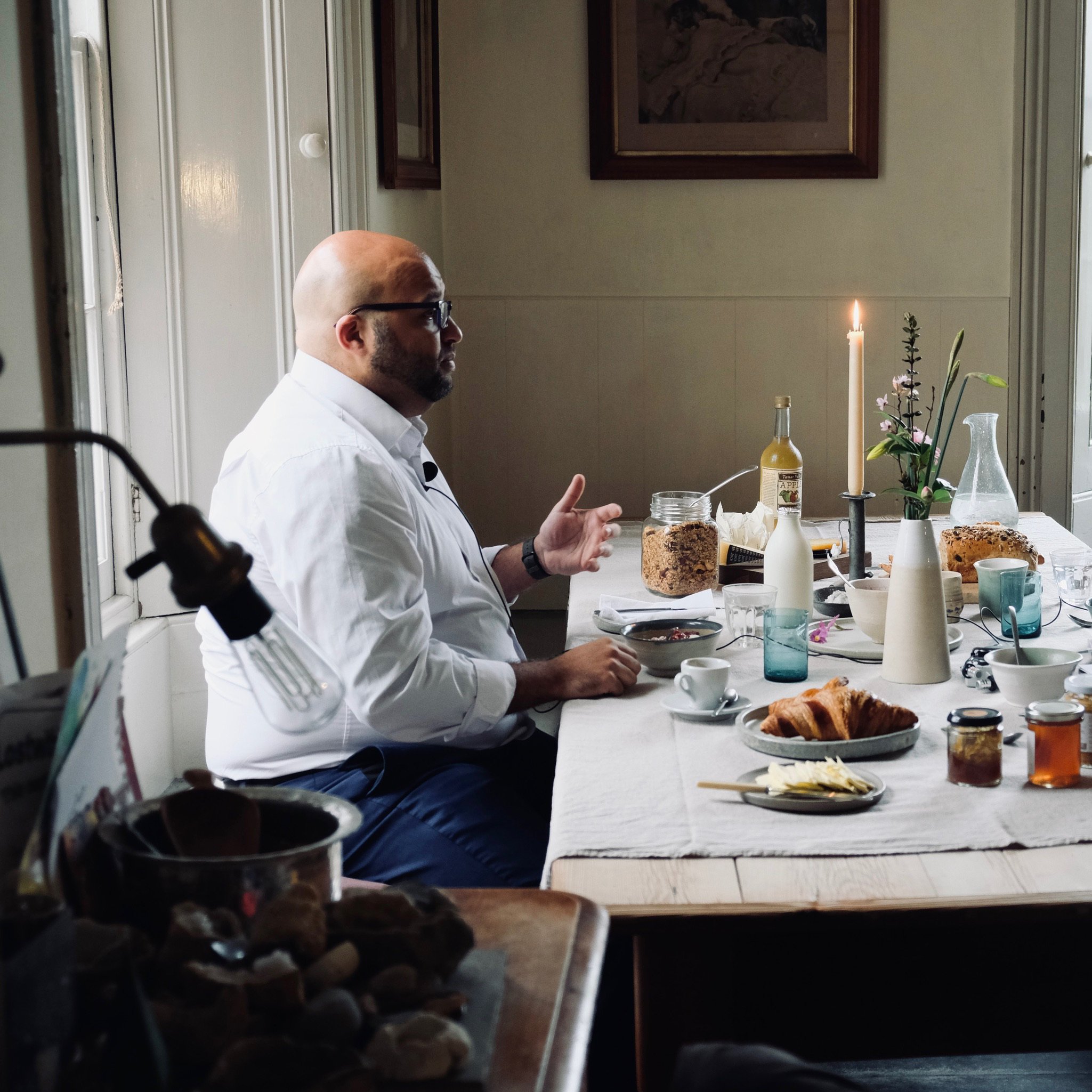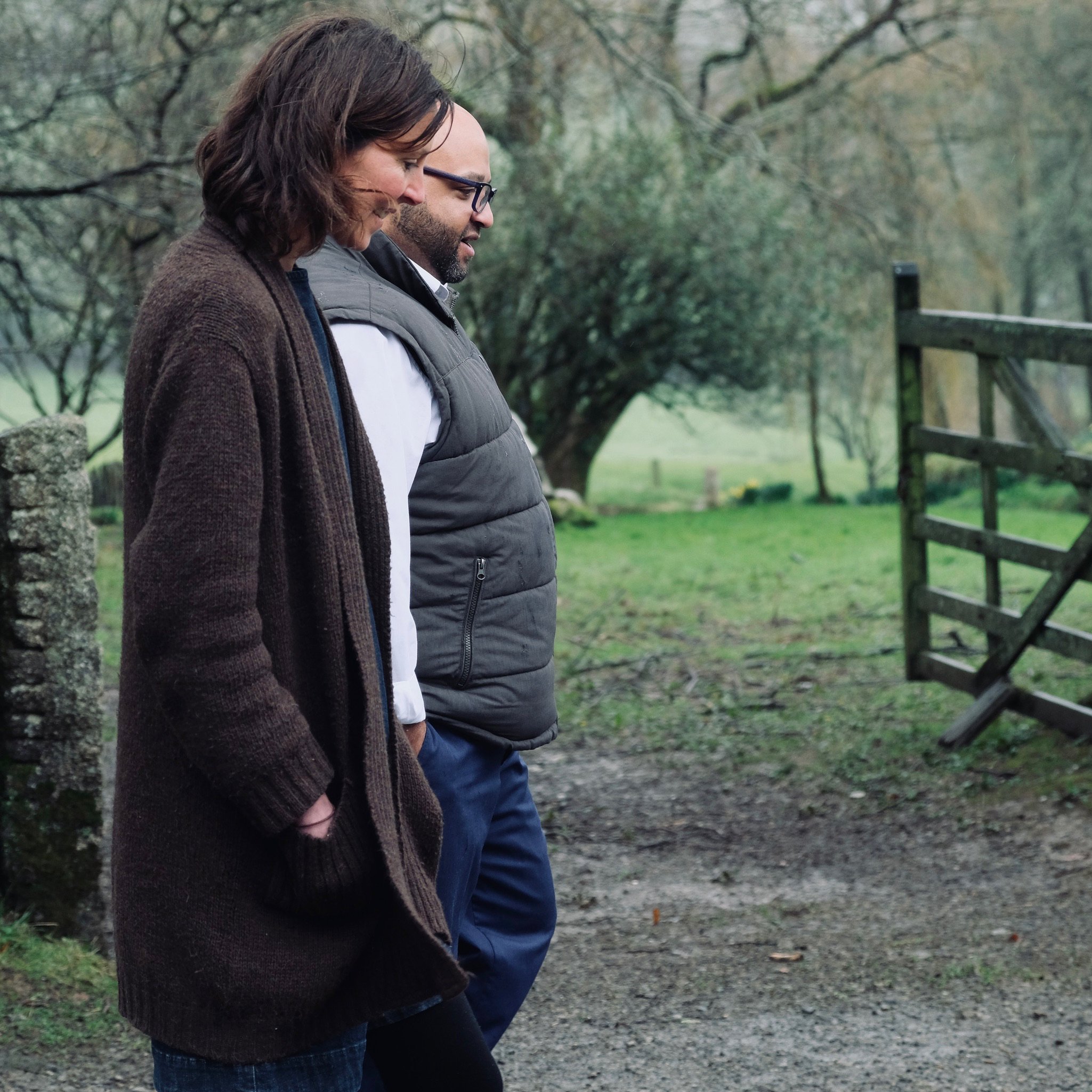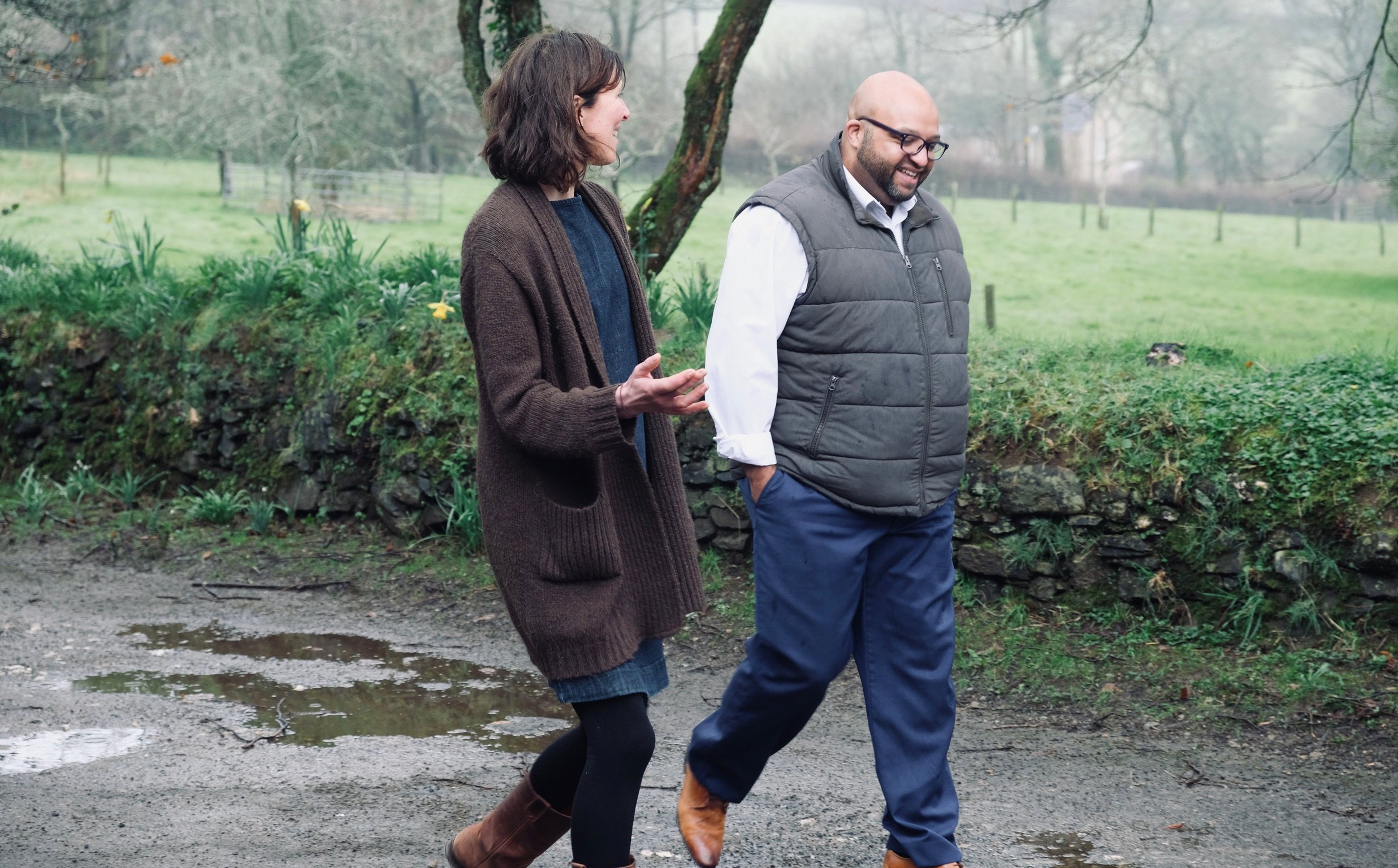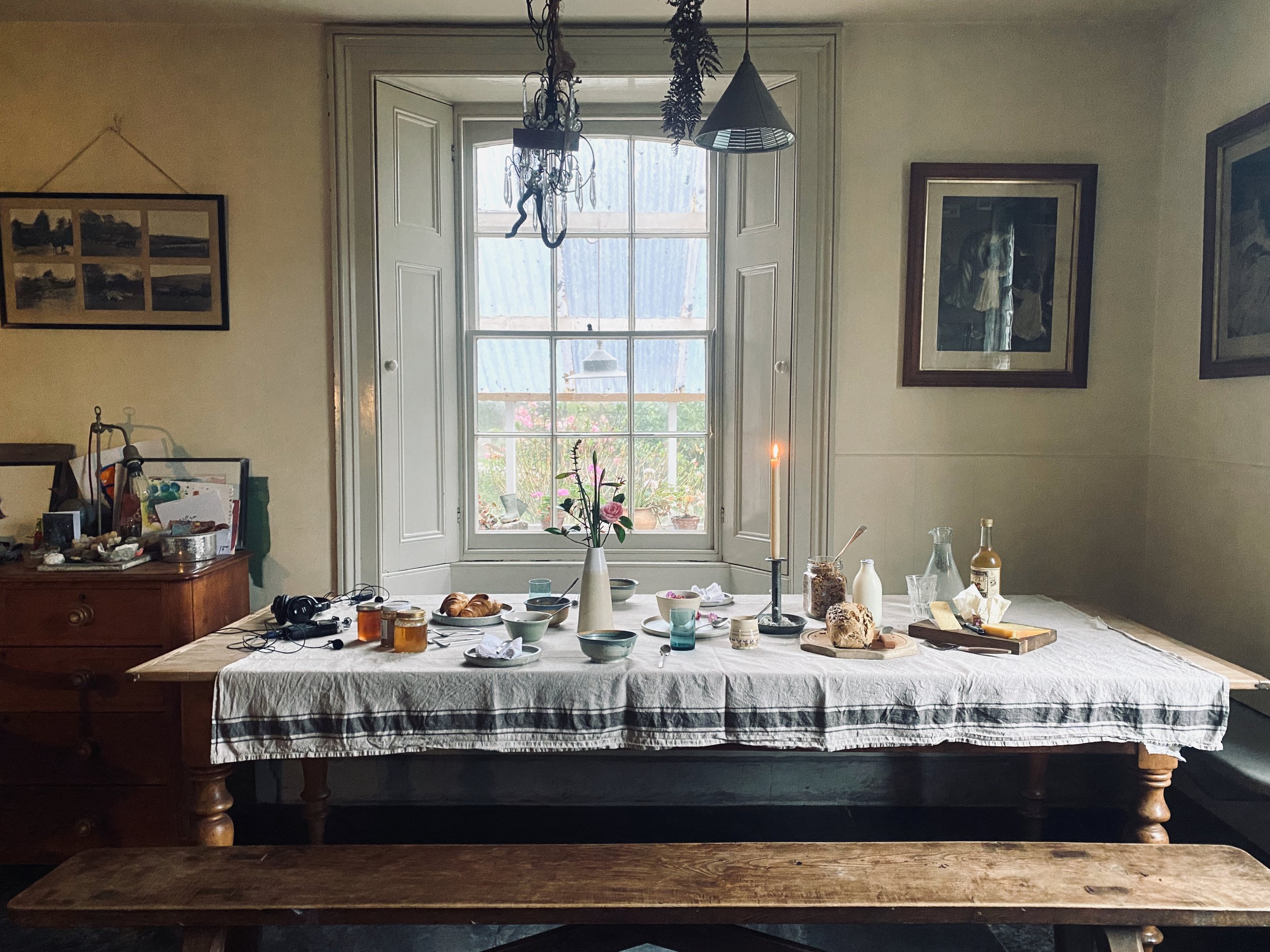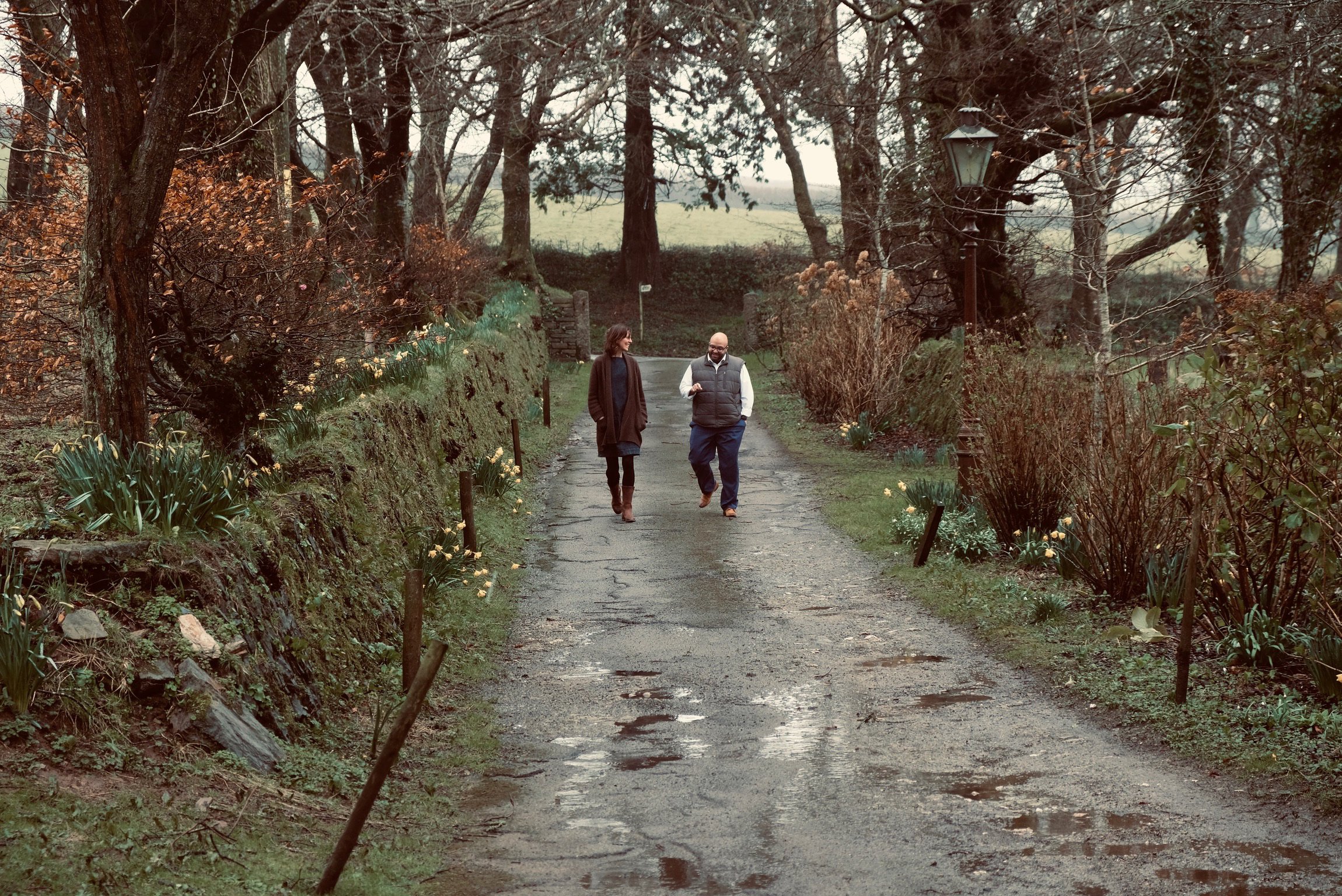Breakfast & Beyond - Episode 12:
Becoming actively anti-racist with Marcus Alleyne of Black Voices Cornwall
For Episode 12, I welcome to the breakfast table Marcus Alleyne, co-founder and Director of Communications for the charity Black Voices Cornwall.
Black Voices Cornwall was established in 2020 following the global rise of the Black Lives Matter movement. The charity exists to enable Cornwall to become an actively anti-racist County .. and during our conversation we discuss why an anti-racist organisation is needed within a Cornish context; we deconstruct what being ‘anti-racist’ means in practice; how Black Voices Cornwall work to achieve their aims; along with Marcus so kindly sharing some of his own lived experiences and personal reflections.
This conversation felt so important, to shine a spotlight on the racism that exists within ourselves, our communities, our county, country and globally, which we need to confront – in ways that can feel uncomfortable – if we are to dismantle the racist scaffolding of our culture.
“Fundamentally, you have to see someone's race, someone's colour, to recognise that they will have not had an equal or equitable opportunity at life […]
we have to know where [racism] has come from, what's happened over the last 1000 years that has led us to have race as a social construct.
Once we recognise that, we understand that black people still [face] challenges”
Do join us - tune in to Episode 12 of Breakfast & Beyond … via Apple Podcasts, Spotify, Stitcher & Tune-In
Breakfast: recipes, producers & growers …
For breakfast I prepared a Cornish-style continental spread - homemade granola, a zingy compote made with early spring produce (rhubarb from the garden along with locally sourced beetroot and lemons), accompanied by freshly baked bread and croissants, a selection of Cornish cheeses and some home- or locally made preserves.
Classic granola (see recipe)
Rhubarb, beetroot & lemon compote (see recipe)
Cornish beetroot & lemons sourced from Fruutbox
Croissants and seeded granary loaf from Bellamama Deli
Cheeses: Cornish Jack, Cornish Gouda & Trevarrion Cornish Camembert, sourced via Colwith Farm Shop
Milk from Green Cow Dairy
Butter & yoghurt from Trewithen Dairy
Tamar Valley honey, sourced via Green Cow Dairy
Home-made Lemon marmalade
Medlar jelly from Gathered Botanicals
Freda’s peanut butter, sourced via Colwith Farm Shop
Apple juice from Tamar Valley Apple Co-operative
Coffee by Lars & Margo
Sustainable living issue: racial inequality
An snapshot of statistics from the Equality and Human Rights Commission regarding racial inequalities within the UK (2020):
Employment: unemployment rates are significantly higher for ethnic minorities at 12.9 per cent compared with 6.3 per cent for White people.
Employment: Black employees hold just 1.5% of top management roles in the UK private sector, research has found; a figure that has increased just 0.1 percentage points since 2014 (People Management).
Education: just 6% of Black school leavers attended a Russell Group university, compared with 12 per cent of mixed and Asian school leavers and 11% of White school leavers
Crime: in England, 37.4% of Black people and 44.8% of Asian people feel unsafe being at home or around their local area, compared with 29.2% of White people
Crime: rates of prosecution and sentencing for Black people are three times higher than for White people, 18 per thousand population compared with six per thousand population for White people
Living standards: if you are an ethnic minority person, you are still more likely to live in poverty. 35.7% of people from ethnic minorities were likely to live in poverty compared with 17.2% of White people
Words to action: what can we do?
What part can we play in actively dismantling racism, and creating a future where there is racial equality?
“In a racist society it is not enough to be non-racist, we must be anti-racist” (Angela Davis)
Take responsibility to learn about the ways in which racism pervades our society, the historical context, and the impact that it continues to have on individuals and minority communities. Read, listen; there are many resources out there (the two books I mention during our conversation are listed in the resources section below).
If you are white, understand that you are afforded privileges that you may not even be conscious of, on account of being brought up in a structurally racist culture where ‘white’ is seen as the universal norm. Learn about the concept of ‘white fragility’ and how it might impact the ways in which you engage with issues of race.
Talk about race - and the inequalities that arise by virtue of a person’s race. Be open to being told that your words or actions could be interpreted as racist, without being defensive. Be prepared to listen with humility.
Call out racism when you see it. Hold yourself, your friends, family and communities accountable.
Get involved with and support organisations that support racial justice issues, such as Black Voices Cornwall.
Remember: small individual steps do, collectively, make a difference. Talk about the issue of racial inequality with those around you. Engage with education and training. We are all influencers within our own social networks, from our personal relationships to within the institutions we connect with such as work place, healthcare and education settings.
Resources & links from our conversation…
Check out the Black Voices Cornwall website and join their mailing list. Follow BVC on Instagram, subscribe to the BVC Podcast.
The books I reference during our conversation are ‘White Fragility: Why It’s So Hard for White People to Talk about Racism’ by Robin DiAngelo and ‘Why I’m No Longer Talking to White People about Race’ by Reni Eddo-Lodge.
Quote by Maya Angelou: “Do the best you can until you know better. Then when you know better, do better”.
Follow Marcus’s work as a conductor, musician, composer and educator through his website, Instagram and Facebook.
Sustainable Development Goals
The UN’s Sustainable Development Goals (SDGs) are 17 targets representing a universal call to action to end poverty, protect the planet and ensure that all people enjoy peace and prosperity by 2030. ‘Everyone is needed to reach these ambitious targets. The creativity, knowhow, technology and financial resources from all of society is necessary to achieve the SDGs in every context’ (UNDP). Translating these global objectives to tease out their relevance at the individual and small-organisational scale can inspire us to connect with these important global themes and consider what we are doing - and what more we can do - to make a contribution that supports our own work and wellbeing along with benefiting other people and the planet.
In Episode 12 our discussion referenced the following Sustainable Development Goals:
8 - Decent Work and Economic Growth - we discuss how race creates barriers to decent work for people who are black and from minority ethnic as well as other marginalised groups, creating inequalities at the individual and societal levels.
10 - Reduced Inequalities - the Black Voices Cornwall mission to enable Cornwall to become an actively anti-racist county is centred around reducing inequalities in all areas of life for individuals and minority ethnic groups, in terms of personal and community life, and through all of the institutions we interact with such as healthcare, education and work place settings.
16 - Peace, Justice and Strong Institutions - Black Voices Cornwall works with institutions such as healthcare, education, work places and the police, supporting them with becoming actively anti-racist through education and training.
Podcast recording: behind the scenes …
Thank you for listening!
Thank you for listening to Breakfast & Beyond: Conversations from Cornwall on Sustainable Living. If you enjoyed listening I’d love it if you could subscribe to the podcast, rate it, and share episodes with friends and family who would enjoy them. You can listen and subscribe via Apple Podcasts, Spotify, Tune-In or wherever you find your podcasts.
I’d love to know your thoughts - please join the conversation and get in touch by email tia@botelet.com or instagram. Thank you and I look forward to sharing next month’s episode with you.
The Breakfast & Beyond podcast is hosted at our home Botelet Farm in South East Cornwall, where my husband’s family have lived and farmed for over 150 years, and three generations still share the farmhouse today. Set in a peaceful valley upstream of Fowey, we welcome visitors to stay in historic cottages, and there’s a yurt for those who love to immerse themselves in nature.
